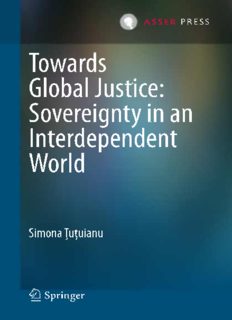
Towards Global Justice pdf free download
 Springer Gabler
Springer Gabler
Towards Global Justice pdf
While traditional political philosophy focused on the nature and scope of justice in the context of states, contemporary global justice scholars examine fundamental problems arising from global cohabitation and address them by introducing new moral concepts. Their theorizing is typically cosmopolitan in nature and their inquiries often seek to make individuals – rather than the state – the primary rights holders. Their work is also influenced by John Rawls and the idea that human rights and other liberal norms are a basis for justice in the world community (see the comprehensive entries on cosmopolitanism and on John Rawls).
The defining features of global justice include a focus on individuals (rather than states), a concern with inequality, and an emphasis on interdependence and cooperation. As such, the discipline addresses issues such as poverty governance, humanitarian intervention, global health, climate change, international law and institutions, and trade policy.
When it comes to poverty, scholars like Thomas Pogge argue that global inequalities demand a wider approach than one based on state-centric non-intervention laws. They and others such as Gillian Brock analyse global structures of wealth distribution and argue that a fairer distribution of resources is required to reduce global poverty.
Other philosophers, such as Mary Kaldor and Daniele Archibugi, examine whether the principles of fairness and equity embodied in the Universal Declaration of Human Rights should be applied to the world community at large. Moreover, in light of a colonial legacy of racial dominance by the West, many scholars seek to incorporate indigenous perspectives into their explorations of global justice.






